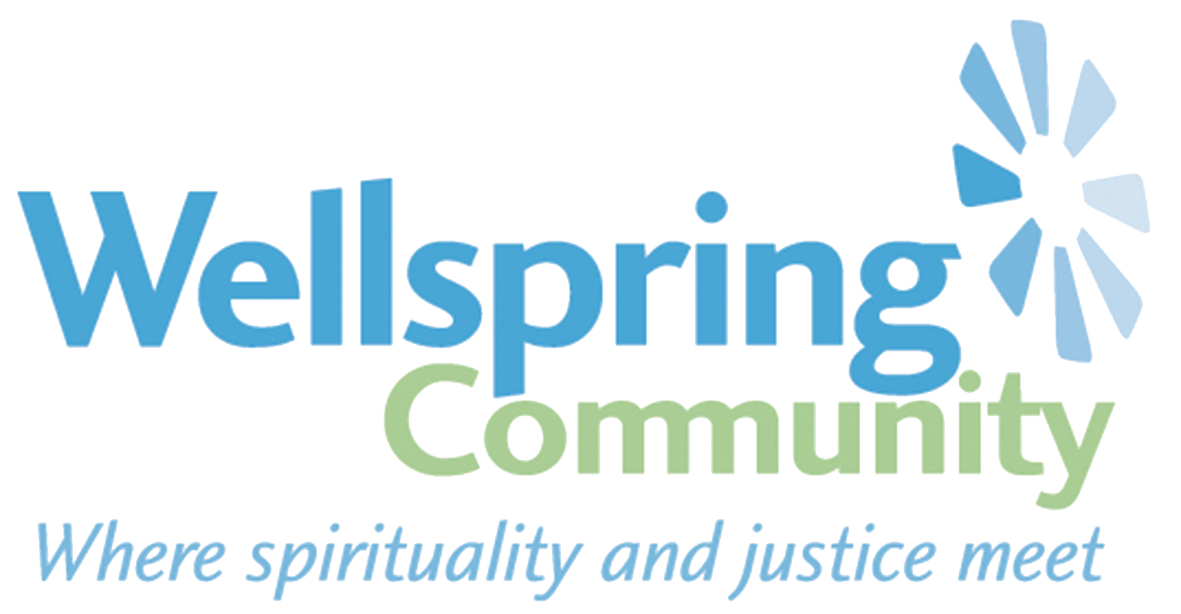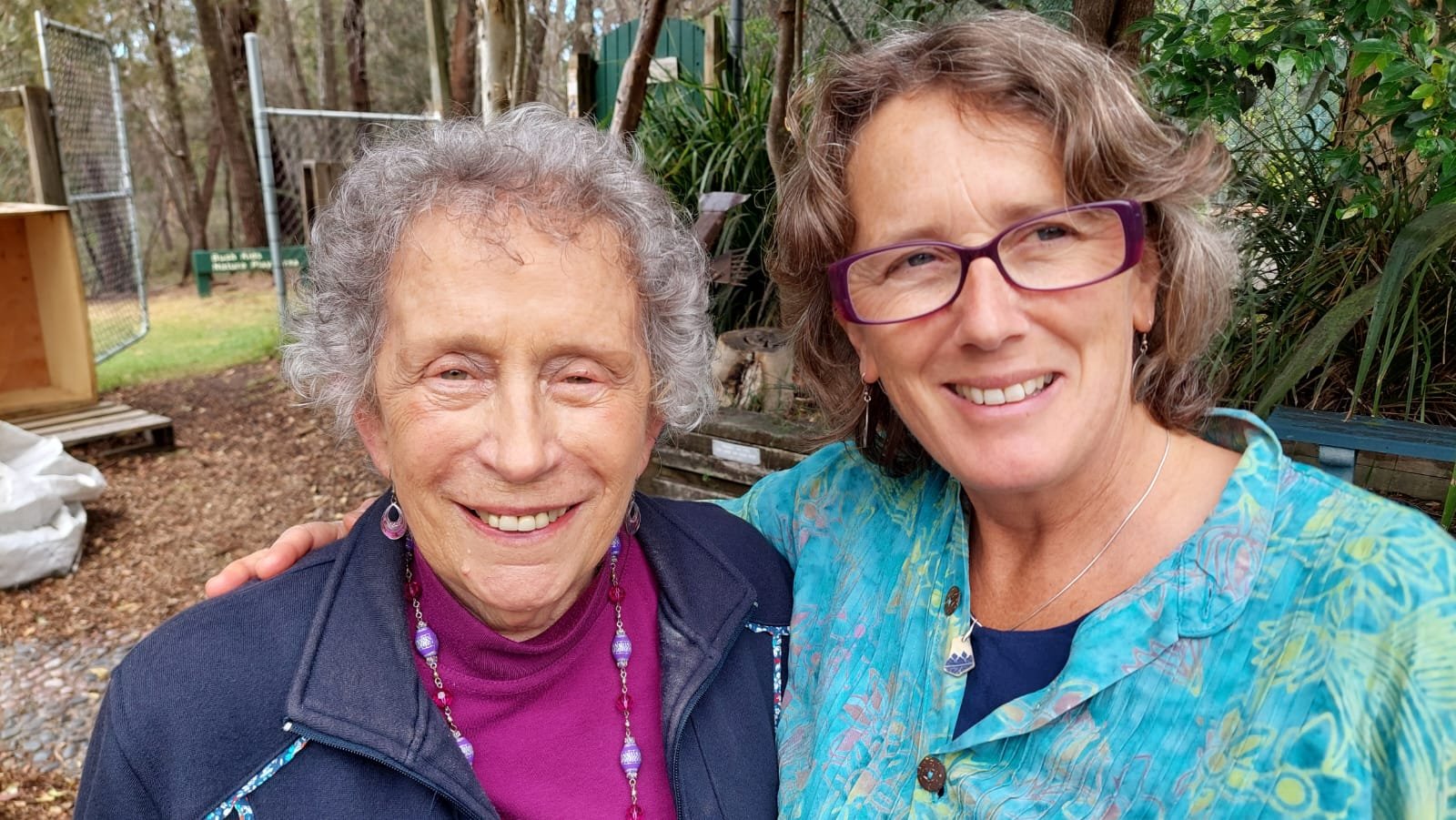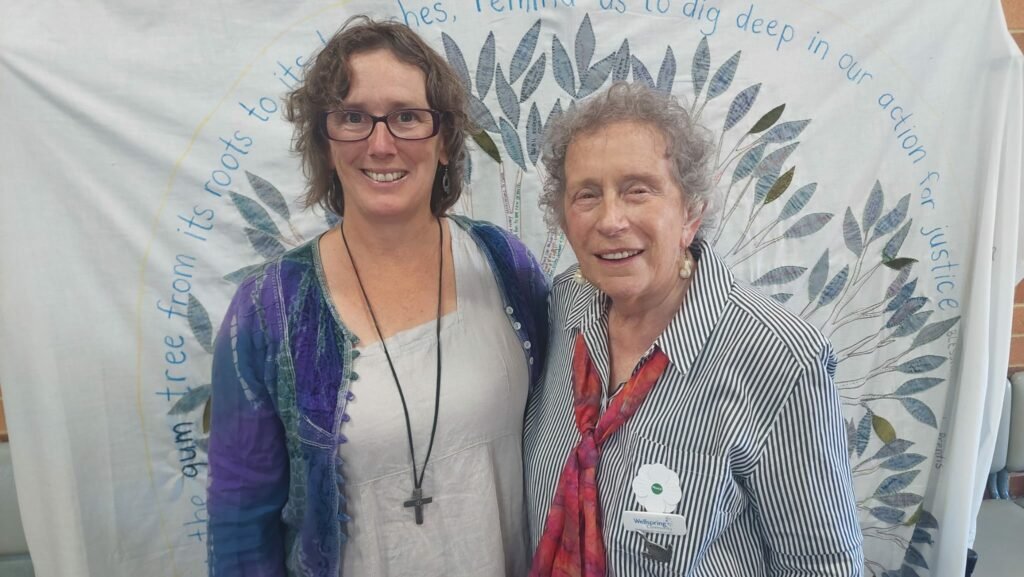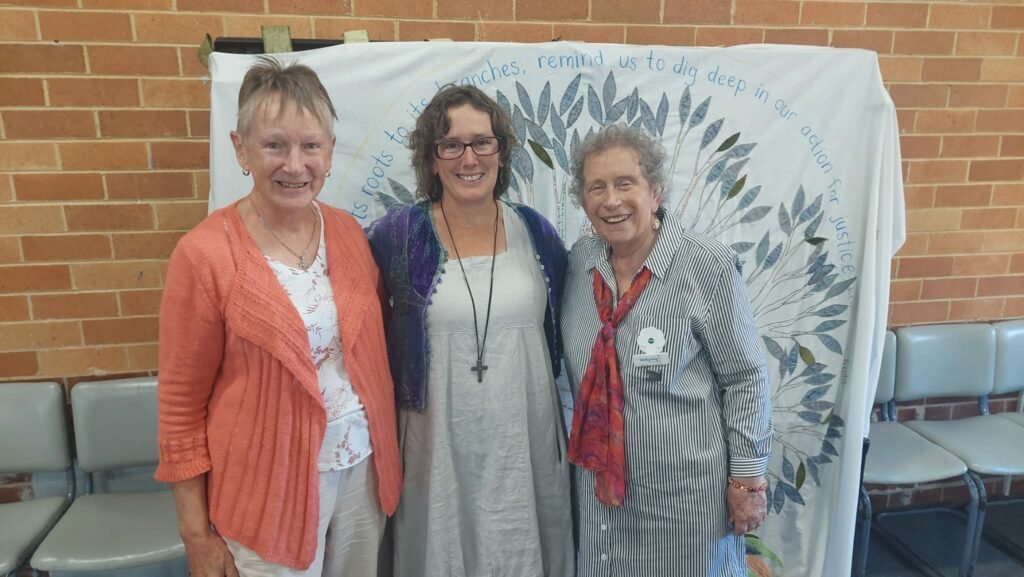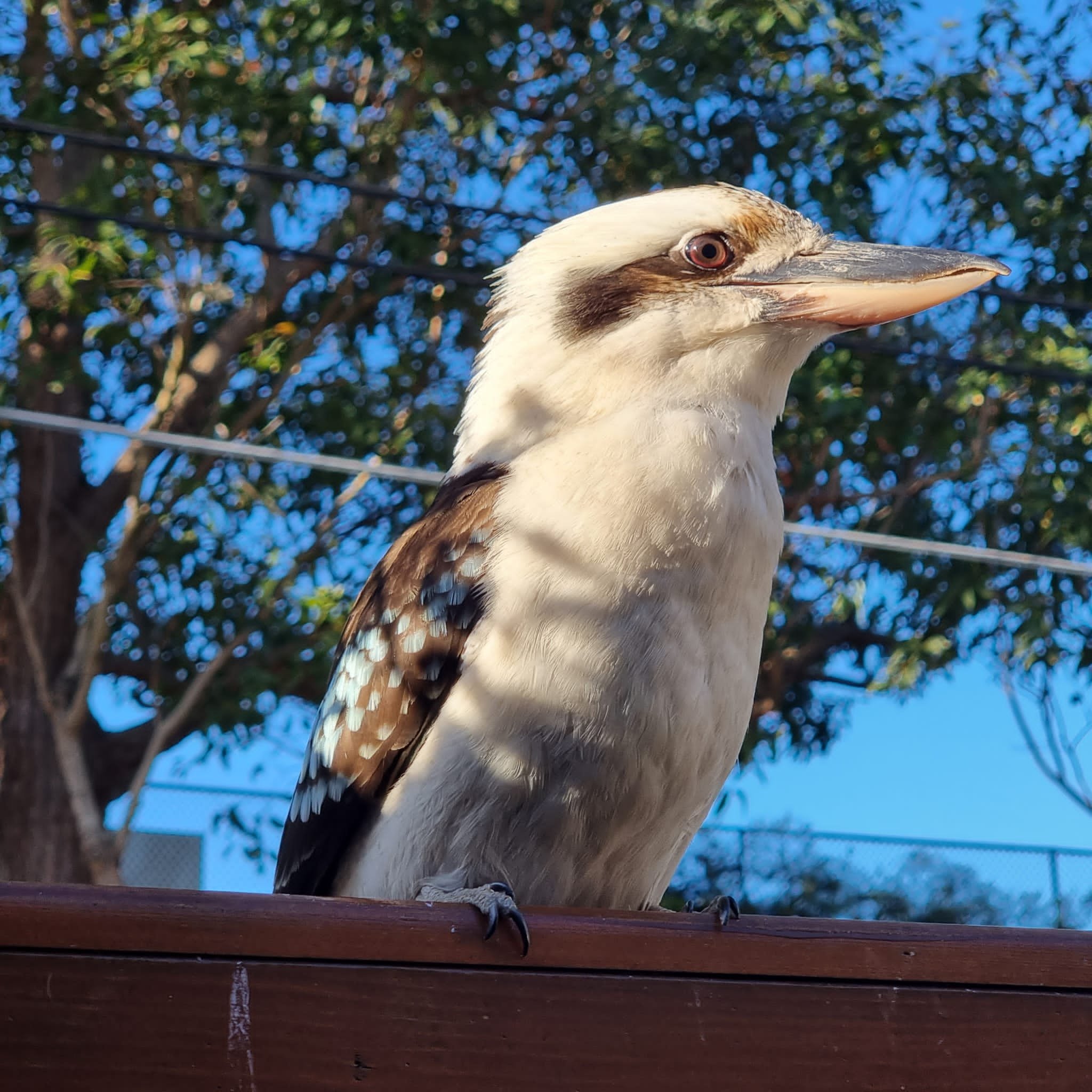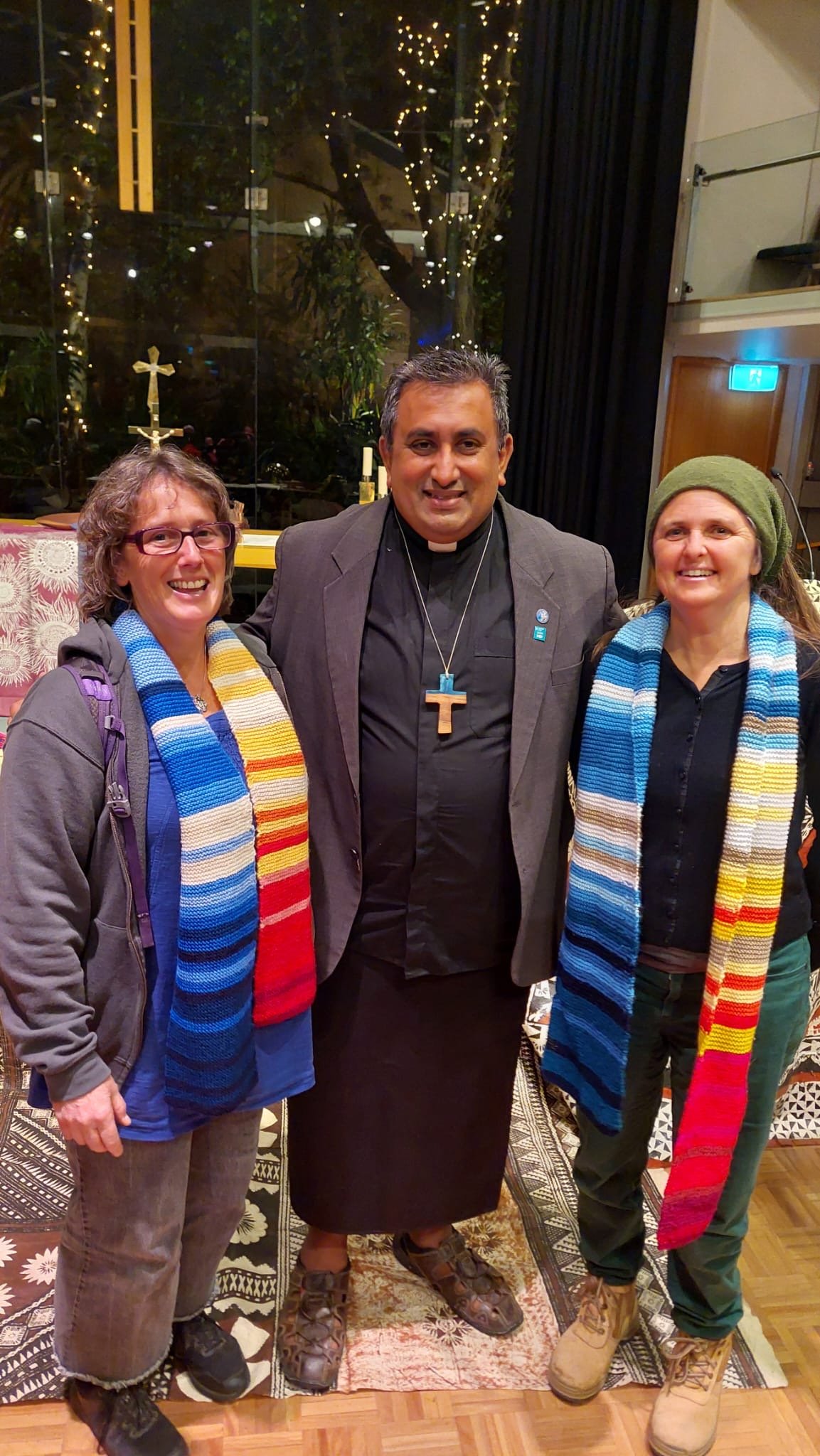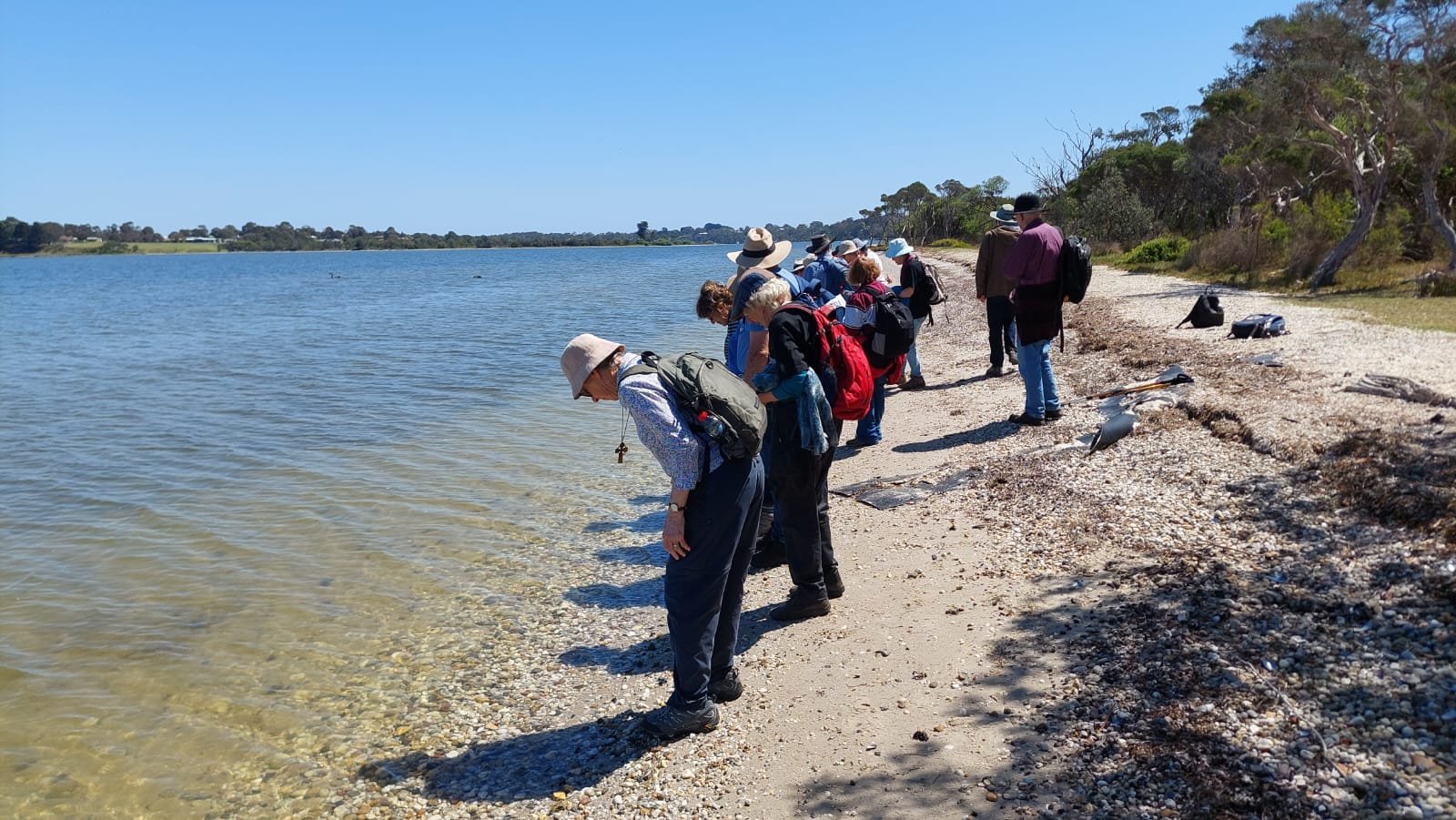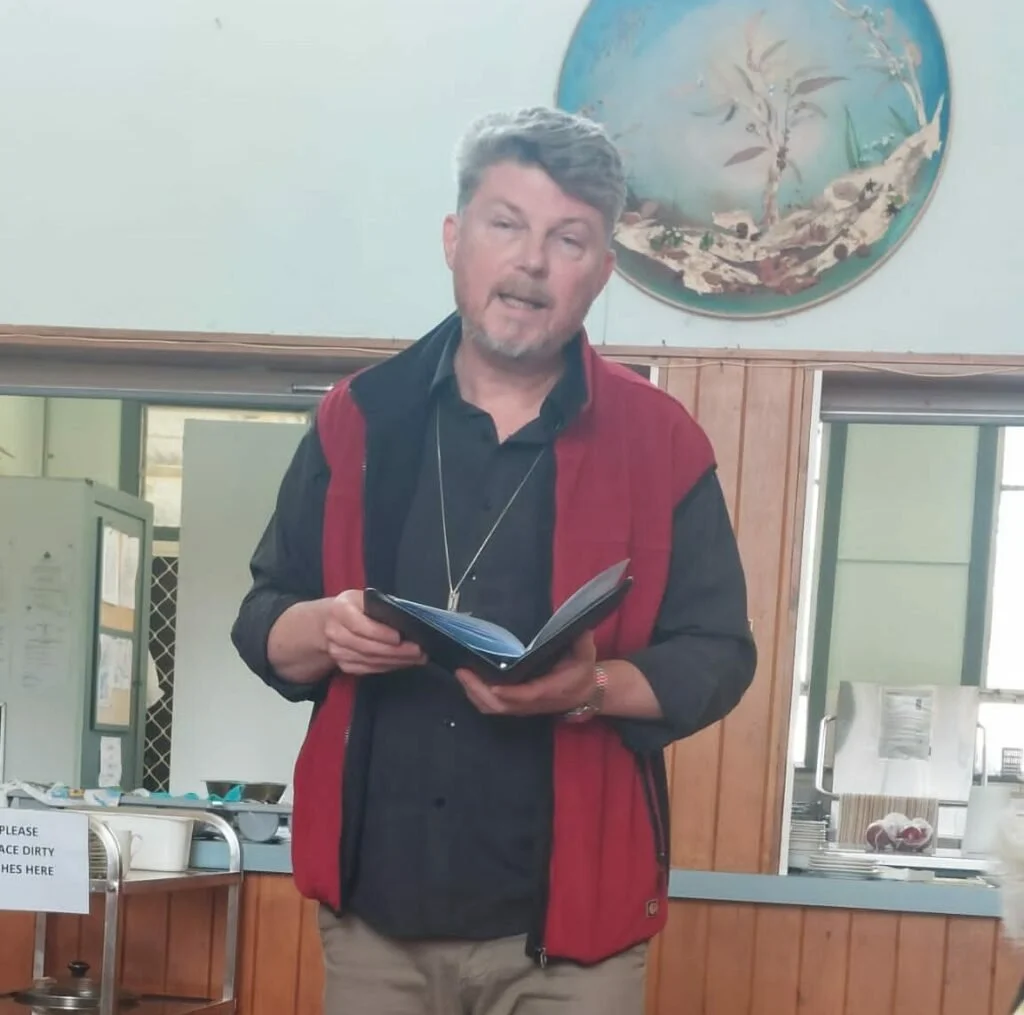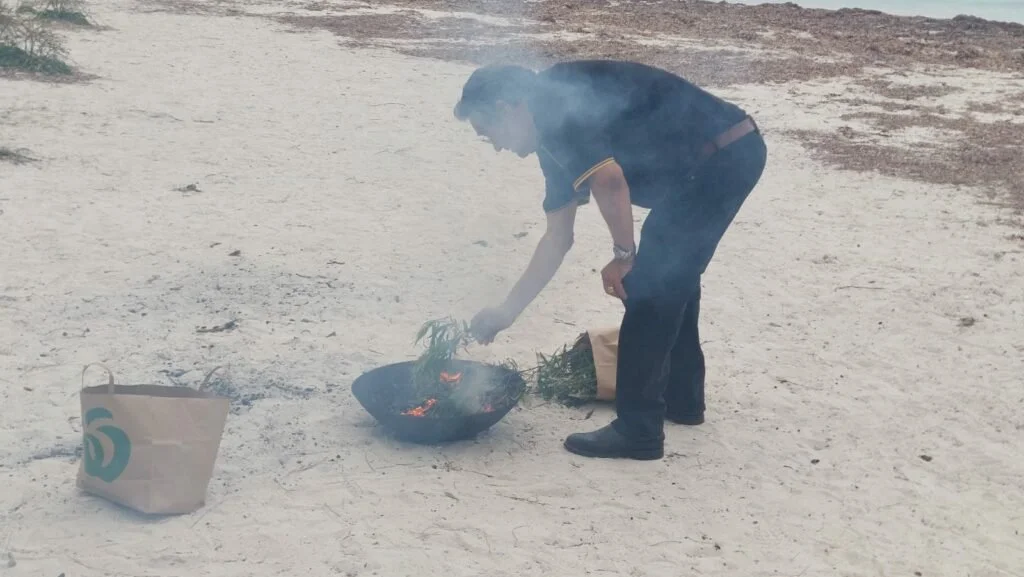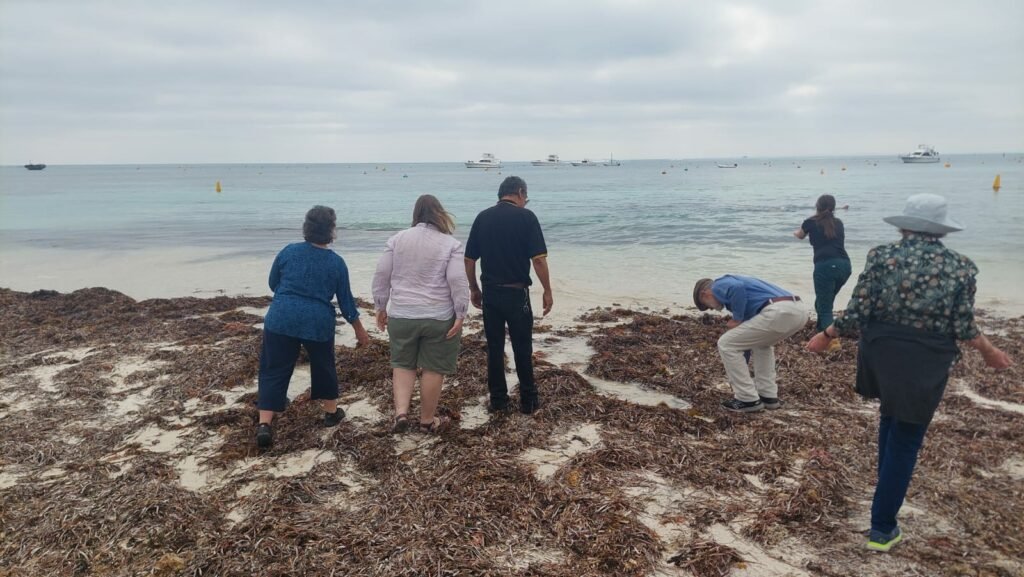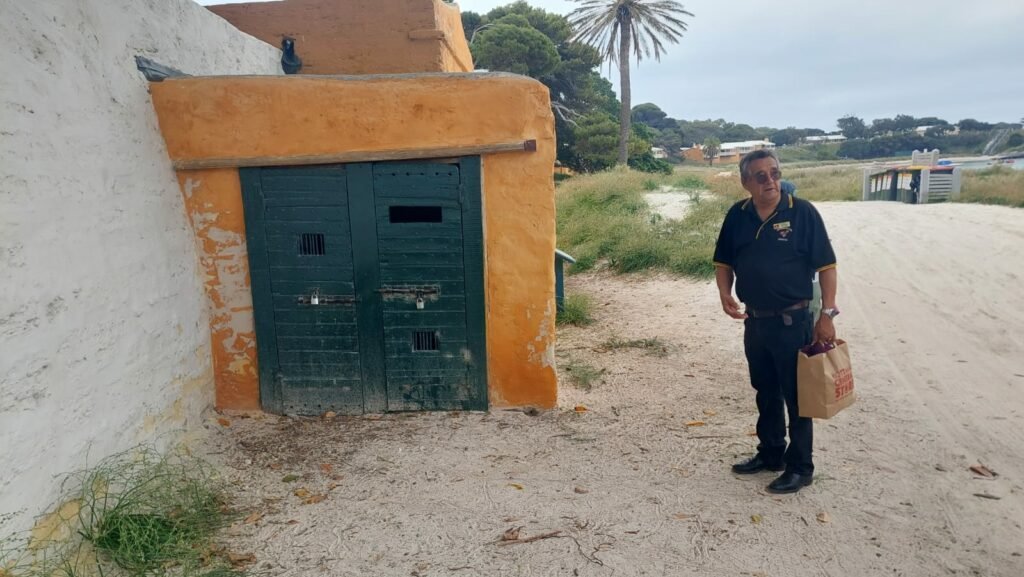Since the first settlers/invaders/colonisers arrived on this already populated, sophisticated, cultivated, flourishing land, much wrong has been perpetrated. In Tarntanya/Adelaide, on Kaurna country, Uncle Allen Edwards welcomed us to the Colebrook Reconciliation Park, one-time site of the Colebrook Home where between 1943 and 1972 around 450 Aborigine children, including Allen’s mother, were removed from their families to be ‘assimilated’ within a white culture. The ‘Grieving Mother’ statute and the ‘Fountain of Tears’ are poignant reminders of the pain of that policy. Later we visited Raukkan, an Aboriginal community where Uncle Clyde and Aunty Rose Rigney shared with us their deep sense of calling to pray for healing and peace in their community through, in particular, the pain of addictions, to alcohol and to drugs, that has blighted the lives of so many indigenous communities where land, livelihood, culture and dignity have been robbed.
The call in the Uluru Statement begins with voice. It also calls for treaty and truth. Specifically, the indigenous peoples of these lands call for a ‘Makarrata Commission’, “to supervise a process of agreement-making between governments and First Nations and truth-telling about our history.” Makarrata, however, signals more than a process of reconciliation – it is a Yolngu word meaning a philosophy, a process of conflict resolution, peace-making and justice.
In each encounter we were graciously encouraged to put care for creation at the heart of our lives, and to put forging of relationships at the core of our work for reconciliation. Bishop Chris McLeod, Aboriginal Bishop of the Anglican Church in Australia (with an uncle George McLeod – we grinned together about that one!) encouraged us to ‘share the glory of your land.’ The shame and ongoing sorrow of the history of colonisation here and across the globe is real. The call from our indigenous friends is clear. Care for creation here and in your homeland. Honour and deepen relationship for the sake of the world.
Ruth Harvey
God of torrents of tears.
God of weeping mothers and stolen children,
of earth marked and scarred, of communities addicted
and elders unseen, unheard,
gather us in to listen deeply, share intently, understand so fully
that our differences become starting points and
our points of intersection become rivers of connection
flowing more deeply than all that divides.
In the name of the One who calls us to be one beyond borders.
Amen
